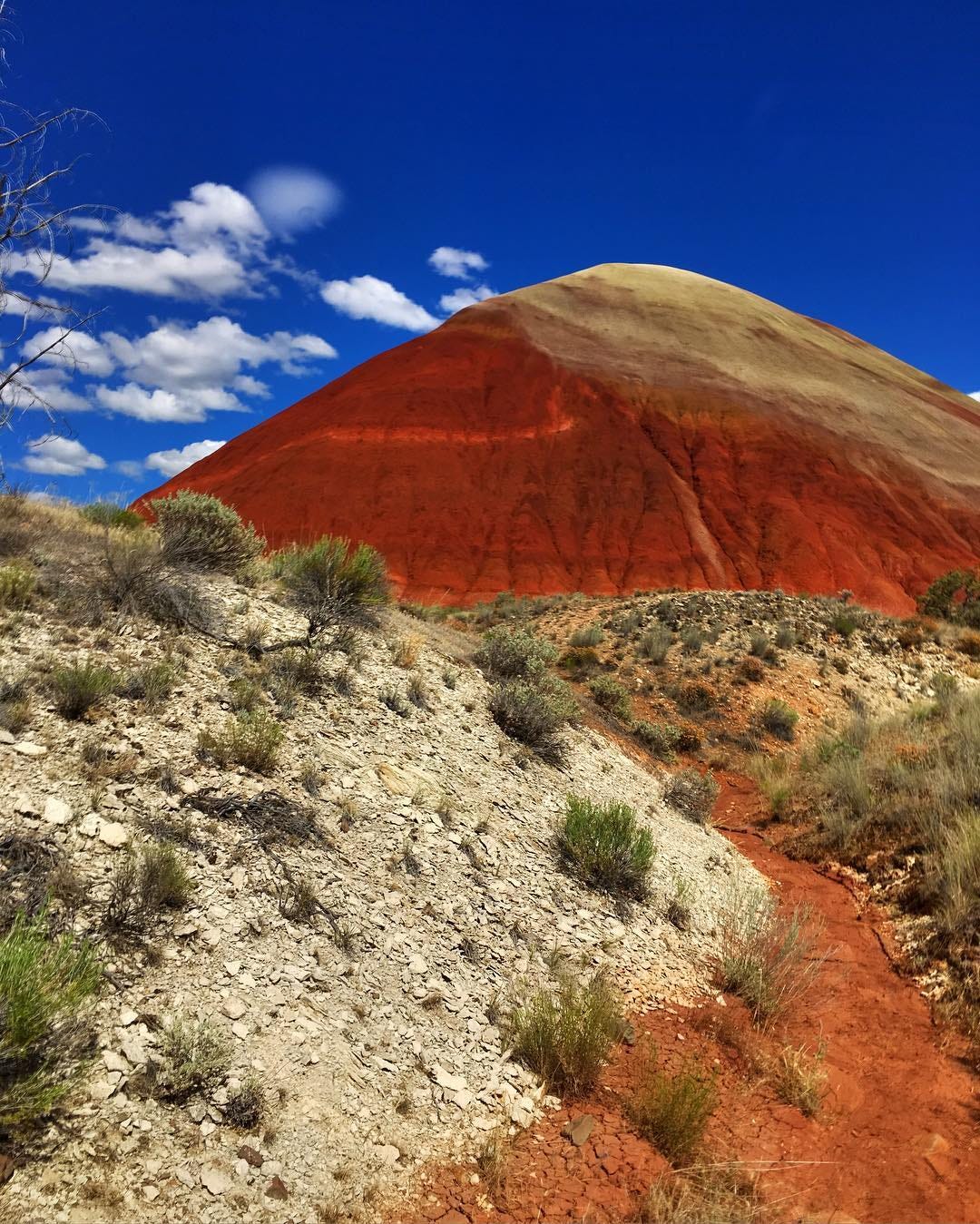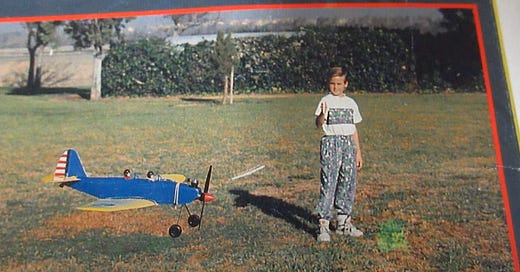
Why is this interesting? - The Monday Media Diet with Matt Haughey
On Twitter, tractors, and the magic of DIY YouTube
Continuing on our theme of Monday Media Diets, today’s special guest is Matt Haughey (MH). I’m not quite sure when I first ran across Matt, but I signed up for Metafilter, the community website he created, in 2004. I still hold up Metafilter as one of the shining examples of how to do community management right. The site, which is now run by others, has largely managed to avoid the fate of so many social platforms and has guided a lot of my own thinking about how to maintain social spaces on the web. Excited to have Matt joining us to talk about his reading habits. - Noah (NRB)
Tell us about yourself.
I’m an early web designer/developer and was around at the dawn of blogs, helping build and shape a lot of the conventions around online communities and blogging. These days I’m a writer at Slack, where I’ve spent the last five years doing just about everything involving words.
I spend the bulk of my time writing blog posts to help everyone use Slack more effectively and get more out of their time with it. I truly think it’s a better way to work but the learning curve can be steep and transitioning to Slack can be a major change for any company, so I fill in the gaps however I can on the user education beat.
Describe your media diet.
Early in my career it was all mailing lists and IM. Then for 15 years it was blogs (until they killed Google Reader). Ever since, it’s been social media. But the throughline is: I locate and listen to people who are really good at certain subjects outside my realm of knowledge, and watch them for early signals into things that are possibly larger and more important.
As much as it pains me to say I get my news mostly from Twitter, I try and follow enough people in weird pockets to keep up on things so I catch interesting stories as they happen. So maybe that’s the former architect that lives in Switzerland (who came up with the name ‘Yelp’) or the sociologist professor from Virginia or the obsessed weather researcher that works at the nearby winery supply store, but outside of all the jokes and breaking news, I love getting a glimpse into what a small stable of experts around the world is currently interested in.
What’s the last great book you read?
The Valedictorian of Being Dead by Heather Armstrong explained mental illness in ways I’ve never seen articulated before. I’ve lived with it myself for decades but can’t quite put into words how it really feels. Heather slowly walks you into her darkness and how overwhelming it can feel, then takes you through the extreme measures and risks she took to come out of it. I was glued from beginning to end and finished it in a couple days, which is unusual for me.
What are you reading now?
Last year I tried to make a point of reading more and I realized I’ve fallen down on that goal as I barely touch the Kindle app on my phone these days. The most recent thing I read was Josh Gondelman’s Nice Try which is an enjoyable bunch of funny essays. He’s also great on twitter.
When I saw his book was coming out along with other big releases on the same day, I recognized about ¾ of the names on the list as people I follow and know about (mostly because of twitter) and I had this sad realization I was truly, finally, deeply in middle-age. All those major books are now seemingly from peers in my (or earlier) generations. We’re the adults running things now and no one is coming to save us. It was a sobering thought.
What’s your reading strategy when you pick up a print copy of your favorite publication?
I rarely read print pubs anymore, but a few years ago I got the Sunday NYT delivered at home and my strategy was to split sections into a fun pile and a serious pile. So every time I finished a deeply disturbing news piece I got to have a little Styles Magazine or the Travel section as a treat.
Who should everyone be reading that they’re not?
I’m gonna go sideways on this, but hear me out: the podcast You’re Wrong About. The hosts revisit major news stories from 10-30 years ago that you probably thought were set in stone by now, but even on a cursory review, you realize we got many things so drastically wrong. I’ve become a better reader of current news thanks to their work on the show. The same pitfalls reporters fell into in the 1990s come up on the campaign trail today and the podcast has done wonders at helping me spot a writer’s blind spots or when an interviewer jumps to unfair conclusions or when an editor crafts a story to fit his own narrative rather than the subject’s real story.
What is the best non-famous app you love on your phone?
Timer+ on the iPhone for managing five things at once in the kitchen when I cook dinner. I don’t make exceedingly complex dishes, but I need to run 2-3 concurrent timers and I tried out dozens of options (the default stopwatch on the iPhone is extremely limited and useless) before I found Timer+ and it’s nearly perfect.
You create a bunch of timers, it saves them all, and you can name them and run them concurrently while also making your iPhone screen so it doesn’t dim or go to sleep when your hands are elbow deep in chicken guts. It even buzzes your watch if you’re not looking at your phone. In the kitchen it’s become a killer app for tracking bread in the toaster oven, oil in the frying pan, rice in a pot, and veggies being oven-roasted all at the same time for me.
Plane or train?
Train is usually more pleasant, but I realize I haven’t taken an Amtrak train on any west coast trips before. I really should someday, but last time I looked, Amtrak cost as much as a plane and went as slow as a car. This is really where every other country shines over the US. I’ve crisscrossed Italy and France and the UK on delightfully cheap, high-speed, reliable trains. It’s a bummer we can’t have that here.
What is one place everyone should visit?
I live in Oregon now, and I would say Crater Lake and The Painted HIlls are both things that are more remarkable in person than you’ve seen in photos no matter how breathtaking they may seem. Both places exhibit colors that are difficult to capture on camera and that you rarely see in nature. Crater Lake’s blue waters on a sunny day are a deep blue you’ve never seen before and have to experience in person. It blows me away every time I visit.

Painted Hills. Taken by Matt Haughey.
Tell us the story of a rabbit hole you fell deep into.
I bought a recently-built home from someone that spent less than a year in it, then disappeared. So in the process of figuring out the history of the space and the land it’s on and why it was built like it was, I’ve turned into a full-on amateur electrician as I’ve had to rewire so many things. And I built my own complex wireless network and home automation system that works in the house and all the outbuildings. Also? It’s on a few acres and I just got a small tractor with a backhoe and I have a whole new appreciation for people that operate heavy equipment and move logs and dirt with aplomb.
What links these all together is YouTube. I have learned more and completed more DIY projects in the past year than I have in the past decade because there is a tutorial about anything you can imagine. It’s like an endless apprenticeship, with thousands of videos from older experts ready to teach you how to get good at their trade. I do almost nothing new without consulting YouTube first (many people don’t know YouTube is the second most popular search engine on earth).
Thanks for reading,
Noah (NRB) & Colin (CJN) & Matt (MH)
Why is this interesting? is a daily email from Noah Brier & Colin Nagy (and friends!) about interesting things. If you’ve enjoyed this edition, please consider forwarding it to a friend. If you’re reading it for the first time, consider subscribing (it’s free!).








